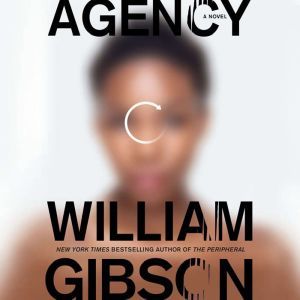


Stubs of time branch off the main flow of time, and Verity lives in a stub where Turkey and Syria are heating up at their border, with nuclear conflict dangerously close. Verity’s place in time is 2016, with the election of the first female president in the United States, and Brexit not happening. Another group, led by Ainsley Lowbeer, is trying to thwart their plans and avoid war. Hobbyists, wealthy oligarchs known as the klepts (short for kleptocracy, corrupt leaders who exploit people or resources to become richer) alter past circumstances for either personal amusement or gain, and are leading the present world toward “the jackpot” or all out nuclear war. More plot lines, however- a group of characters 100 years hence have the ability to travel to this present time, and influence events. Eunice begins taking over Verity’s life, networking here and there, not even certain of her personal motivation, or if her motives are programmed or independent (agency?) It seems as soon as Eunice is powered up, that Verity’s life is endangered by agents of Cursion, and Eunice mobilizes her network to protect Verity. Eunice and Verity interact via glasses and an earpiece (think Google glasses).

Eunice is a software agent, developed at the Naval Postgraduate School, but now acquired by Tulpagenics, a company that appears to be owned by Cursion.

She does this after a mutual breakup with billionaire boyfriend Stetson Howell. Verity Jane (truth?) takes a job as a tester of a new AI, who calls herself Eunice (UNISS?). Full disclosure: this is my first read of Gibson, not having read The Peripheral, or even Neuromancer (some day I’ll get to it.) Perhaps Agency would be clearer if I read The Peripheral first, but I believed reviewers who said this could be read alone. Gibson juggles several plot lines, and expects the reader to pick up scant breadcrumbs and make connections with few links. Perhaps AI “persons” have greater agency than we do. Gibson’s book can be seen as a commentary on what is a person, should artificial intelligent beings have agency, and is freedom an illusion. So agency can be thought of as personal freedom, which is always limited by our circumstances, socio-economic status, government, self-perception, etc. parents and children.” “Agency (Sociology), Wikipedia. Disagreement on the extent of one's agency often causes conflict between parties, e.g. This ability is affected by the cognitive belief structure which one has formed through one's experiences, and the perceptions held by the society and the individual, of the structures and circumstances of the environment one is in and the position they are born into. “One's agency is one's independent capability or ability to act on one's will. A person or thing through which power is exerted or an end achieved.” Merriam Webster.


 0 kommentar(er)
0 kommentar(er)
